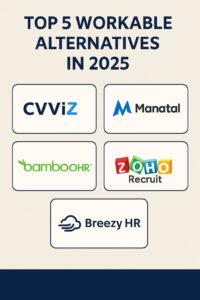The unfolding of the gig economy gives a new and exciting meaning to the term employment, both as a concept and practice. For example, the idea of running a business is shifting from a large establishment to a highly skilled individual.
This change provides a strong foundation for growth and development in the talent acquisition industry, often known as the recruitment industry.
Before going ahead, let us understand what the gig economy means.
What Is Gig Economy?
Gig economy by definition is a transactional economy framework primarily focusing on hiring freelancers and independent workers on a contract basis as opposed to hiring them as permanent employees.
The gig economy jobs consist of short-term, income-earning activities that lack the traditional employee-employer structure.
Gig Economy Changing The Workforce Structure
The hiring industry is taking on a big responsibility by bringing on skilled workers into the organization. This could be full-time or on a contract basis.
With stern policies about human-resource in place, recruiting full-time employees is becoming a costly affair for the company. Companies are now focusing on turning the human resource division from a cost center to a revenue center.
Listed below are some of the gig economy trends that will shape the recruitment industry in the upcoming years.
1. Freelancers Working With FTE
In the last decade, we have seen a rapid transition from full-time employment to contract work. Roughly 1 in every 5 individuals are likely to take up gigs rather than a traditional job.
Large companies are engaging the majority of the tasks to external sources, thereby leveraging freelancers in big numbers. Two-thirds of the leading companies are using contract workers for their activities.

According to a study by Startupsanonymous, the number of freelancers is expected to reach 86.5 million by the year 2027.
For example, companies like Uber and Airbnb use freelancers at the core level of their business model.
The gig economy structure provides additional opportunities for freelancers as more firms are taking their business online. This is making remote work a raging trend.
The transition from working in an office to working from home is an ongoing practice impacting the core functioning of several businesses. As a result, there is a visible shift in the number of remote workers in the last eight months.
According to Kate Lister, president of Global Workplace Analytics, twenty-five to thirty percent of the workforce in the US will be working from home multiple days a week by the end of 2021.
This development creates a new regulatory environment for the human resource industry.
For example, recruiters mainly focused on hiring full-time employees. Since the boom of the gig economy, companies are now tailoring their sourcing strategies based on the talent the job demands.
Taking on more contingent workers reduces operational costs and eliminates the excessive cost in the field of recruitment.
This is particularly beneficial for small businesses as they can save on working capital requirements. In other words, this increases the profit margin for the company.
2. Technology Making Hiring And Collaborating With Freelancers Simple
The progress of the gig economy is a result of worldwide technology change.
According to a global digital overview report, around 5.2 billion smartphone users across the globe, roughly 4.66 billion people make use of the internet’s daily activities. This massive network allows companies to be free of the geographical boundaries that come with traditional recruitment procedures.
Companies are now implementing a ‘total talent management strategy by broadening their sourcing channels using this universal network. Multiple talents all across the globe are accessible and assessable within seconds.
The Covid 19 pandemic 2020 is boosting the gig economy in multiple ways. One of which is the demand for digital applications.
Career-dedicated digital platforms like Fiverr, Upwork, and Toptal are on the rise. According to a report compiled by Gigsmart, the demand for its gig economy apps has increased by 25% from March 2020.
Recruiting statistics 2019 says that 84% of companies use social media to source and hire employees. These exclusive social platforms provide a virtual interface to connect seekers of freelancing talent with freelancers globally.
Recruiters are in dire need of tools that assist in the selection of the best among the pool of highly skilled individuals. Hence, modern AI recruiting software is becoming a necessity rather than a wishful thought.
3. Freelancing Is Trending
The previously held strain around working as a freelancer is dissolving. Similarly, the shame associated with not having a full-time job is long gone.
Early on, only lower-level workers made up a big portion of the gig economy. This included drivers, delivery agents, and cashiers.
Now a majority of the managers and supervisors are working multiple jobs on a contract basis. Additionally, few executives of start-up companies also choose to work on a contract basis.
With more executives in the game, a positive atmosphere is created among gig workers.
Freelance executives are jumping into organizations undertaking prominent responsibilities. This includes solving financial or technical problems efficiently.
Therefore, freelance executives are setting a strong foundation for tremendous opportunities for improvement for new and established companies.
What does it mean for the future?
The gig economy plays an important role in shaping the mindset of the next generation.
More and most youngsters prefer testing the water by working in multiple fields during the early stages of employment. That is to say, a concrete career path from the beginning is an obsolete concept among the youth of today.
According to The Deloitte Global Millennial Survey 2020, millennials and Gen Z value the experience that comes with the job more than the monetary benefits and rewards.
Website planet says that 53% of Gen Z individuals (currently between the age of 18-22) and 40% of the millennials are choosing to freelance.
The notion of ‘being your own boss’ (BYOB) is particularly dominant in Gen-Z. Above all, being responsible for your own decisions is on par with independence and empowerment.
In conclusion
Firstly, the patterns in recruitment that we will observe in the following years are driven by factors of alter the reality of the gig economy. Additionally, organizations are constantly on the lookout for experts in new areas of activities in the gig economy.
The ‘on-demand’ working mentality will take over the traditional ‘always working’ mentality.
Flexibility over stability is the new motto.




